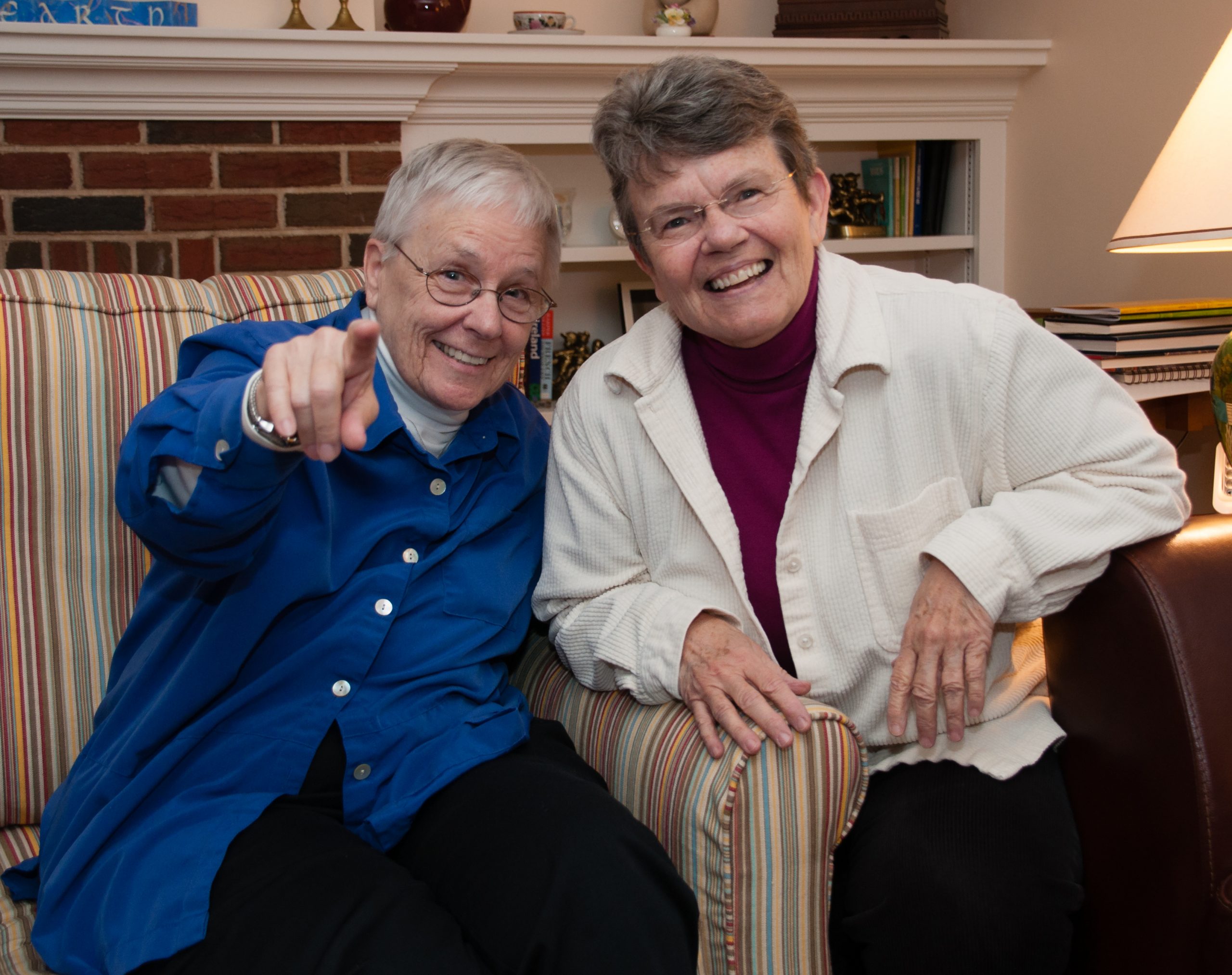By Catherine Walsh, Northeast Communications Specialist
This is the third in a series of profiles of Sisters living with serious illness.
Here’s what Sister Elaine Deasy has: a fatal disease. Here’s what she doesn’t have: a bucket list.
For this woman of Mercy, who is 69 and provides spiritual direction to sisters and laypeople – including women in recovery and incarcerated women – answering the question of how she would live with terminal illness didn’t take long. She would just keep doing what she was doing, but on a reduced scale so she could tend to her medical needs.
“Although I am living each day with the knowledge that I have stage four metastatic breast cancer for which there is no cure, the operative phrase is ‘I am living each day,’” she says. “I don’t have or want a bucket list. I don’t desire to go on a big trip. I’ve done nothing dramatic in terms of changing my life.”
Sister Elaine was first diagnosed with breast cancer in 2001. Although stunned by the diagnosis, she also “felt one with all the women who went before me” who were diagnosed with this disease. Undergoing two mastectomies, including one that was preventive, plus chemotherapy, was “both a scary and sacred time for me,” Sister Elaine recalls.
Nearly a dozen years of good health followed. But then in the spring of 2012, Sister Elaine was plagued by stomachaches. Numerous hospitalizations and several surgeries later, she learned in the summer of 2013 that her breast cancer had metastasized to her small intestine. She endured rounds of chemotherapy and radiation throughout 2014. These days, as spring weather begins to push away memories of the long, snowy New England winter of 2015, Sister Elaine finds herself in a place of fragile well-being.
She takes medication whose only serious side effect is fatigue. “No one feels sorry for me, because everyone is tired!” she quips. “But I love my sweet afternoon naps.” She has resigned from several boards and now does part-time ministry, serving as a spiritual director for a dozen or so people, where once she saw twice that number. In the coming months, she will lead retreats for women in recovery and an enneagram workshop, and direct eight-day retreats for women at Mercy Center in Madison, Connecticut. She continues her bimonthly visits to a maximum-security women’s prison in Niantic, Connecticut, where she offers group spiritual direction, and her bond with the women—who are serving 20 years to life—has deepened.
“When I showed up in prison with no hair and asked the women, ‘How do you like it,’ they said ‘Sister Elaine, you look so cool!’” They have been wonderfully supportive.” Although she has told them only the basic facts of her condition, the women now ask Sister Elaine a question she has always asked them at the end of each visit: “How are you—really?”
Support from the Mercy Community, including Suzanne “Sue” LaVoie, a Companion in Mercy with whom Sister Elaine lives in community, and from her loving family, has made all the difference, says Sister Elaine. “Through it all, there has been nothing greater for me than the love, the prayer, and the sense of being held by the care and compassion of my community and of my family. That has been the most singularly comforting and peace-filled part of all of this trauma.”
Sue has shared Sister Elaine’s cancer journey since the beginning. She had just moved in when Sister Elaine was diagnosed with cancer the first time. “It’s been said that Mercy is the willingness to walk into the chaos of another,” Sue reflects with a rueful chuckle. “When Elaine first got cancer, it was chaos.” Yet thanks to the extended Mercy community, continues Sue, “at no point have I had to do it alone.” Mercy sisters and associates are constantly calling and stopping by. They also come up to Sister Elaine at meetings and say simply, “I love you and I’m praying for you.”
Sister Elaine says her own prayer is very simple. “I feel my God is holding me, helping me, healing me,” she says. “That is my prayer for me and for all who are in need.”
Terminal cancer—and time—have taught her many things, continues Sister Elaine. “When I was young, I was full of righteous anger over the injustices in our world and our church. But I am learning to be gentle, with myself and my own brokenness, and with the world’s brokenness.”
Learning to accept Mercy—after a lifetime of giving Mercy and being Mercy for others—has been “humbling,” adds Sister Elaine. “I’m living Mercy in a way that I had not known I would. My illness has put me in a place where I have learned how to receive Mercy and be graceful about it, and that’s a rich blessing.”
